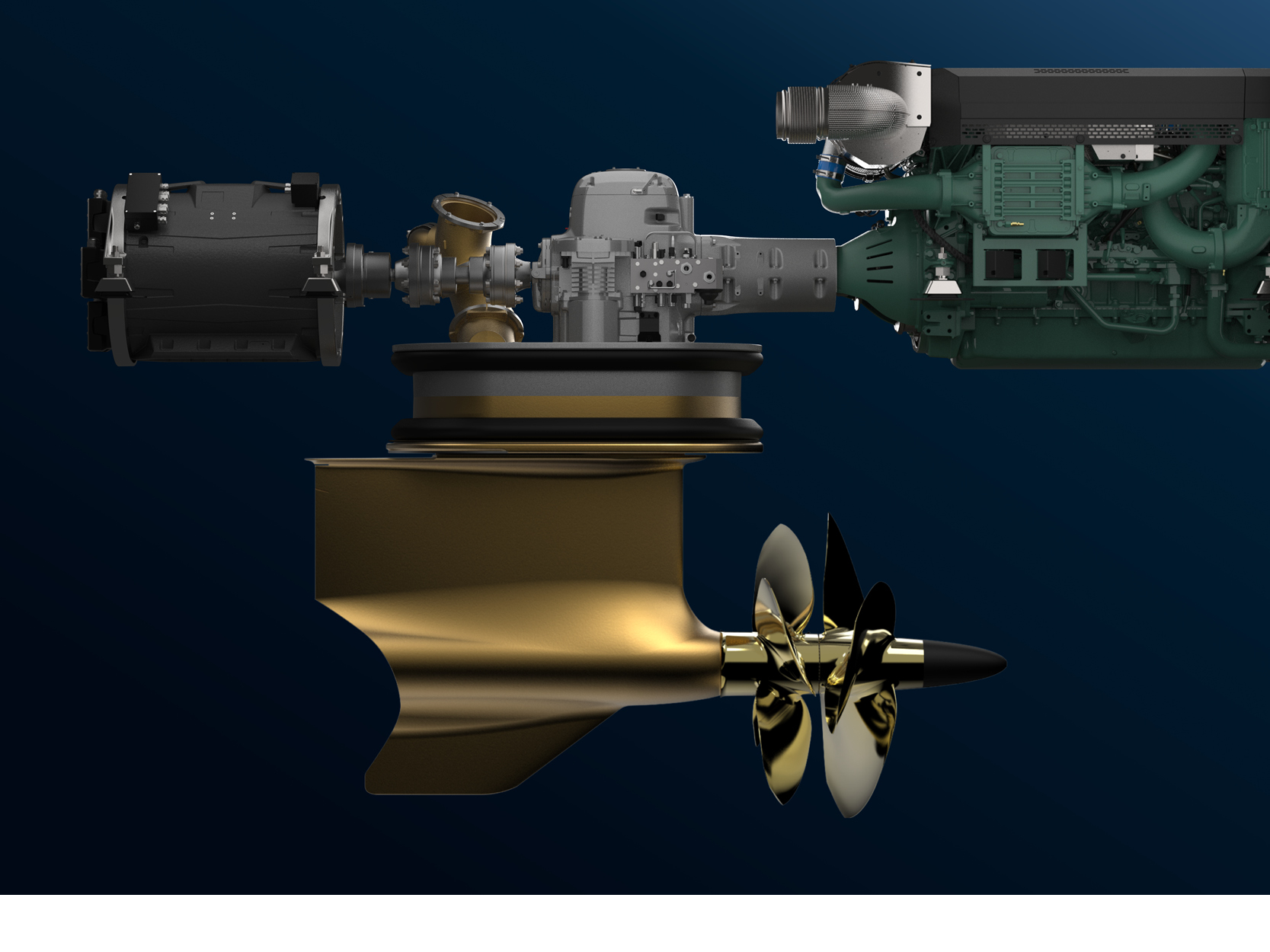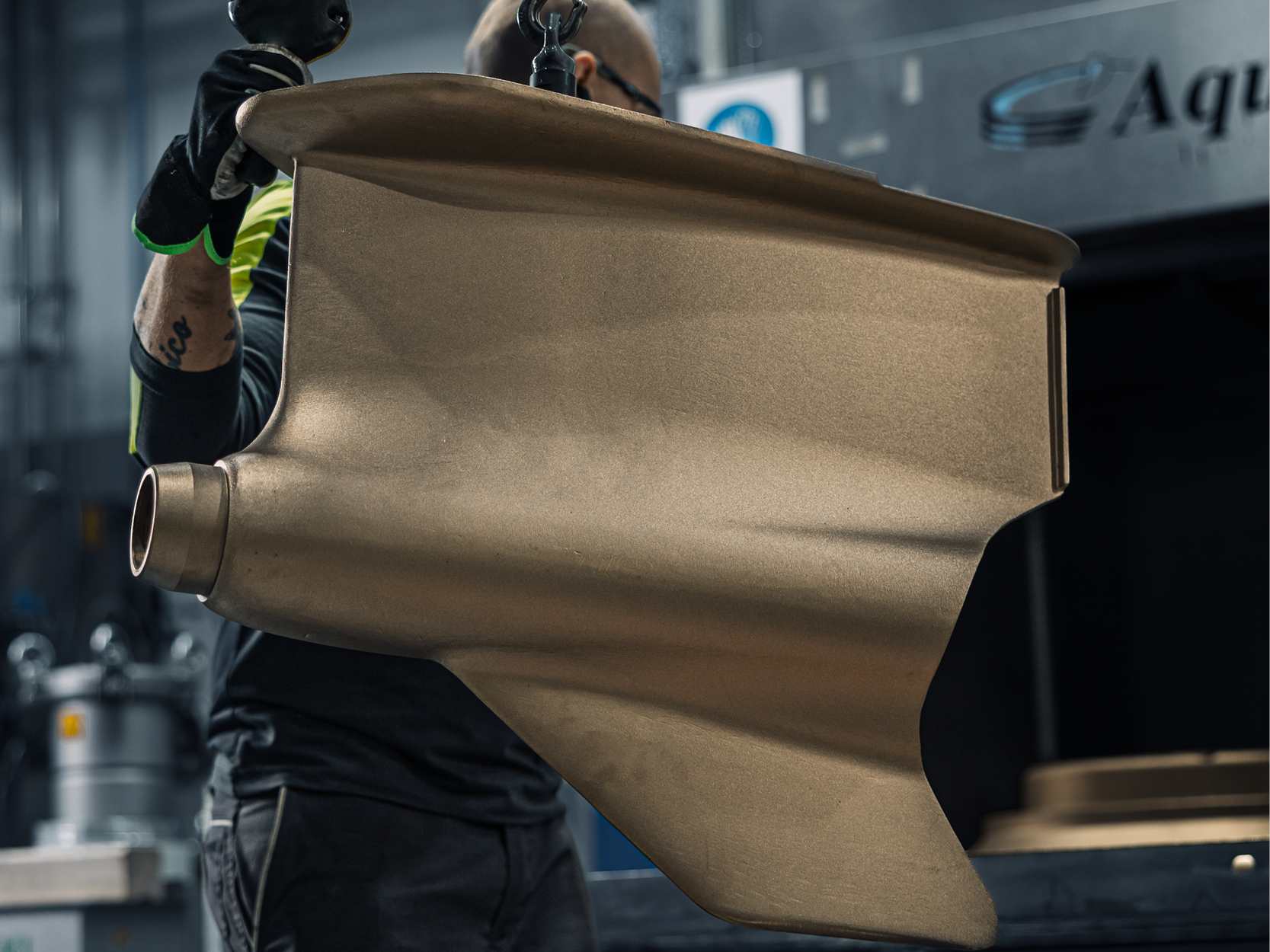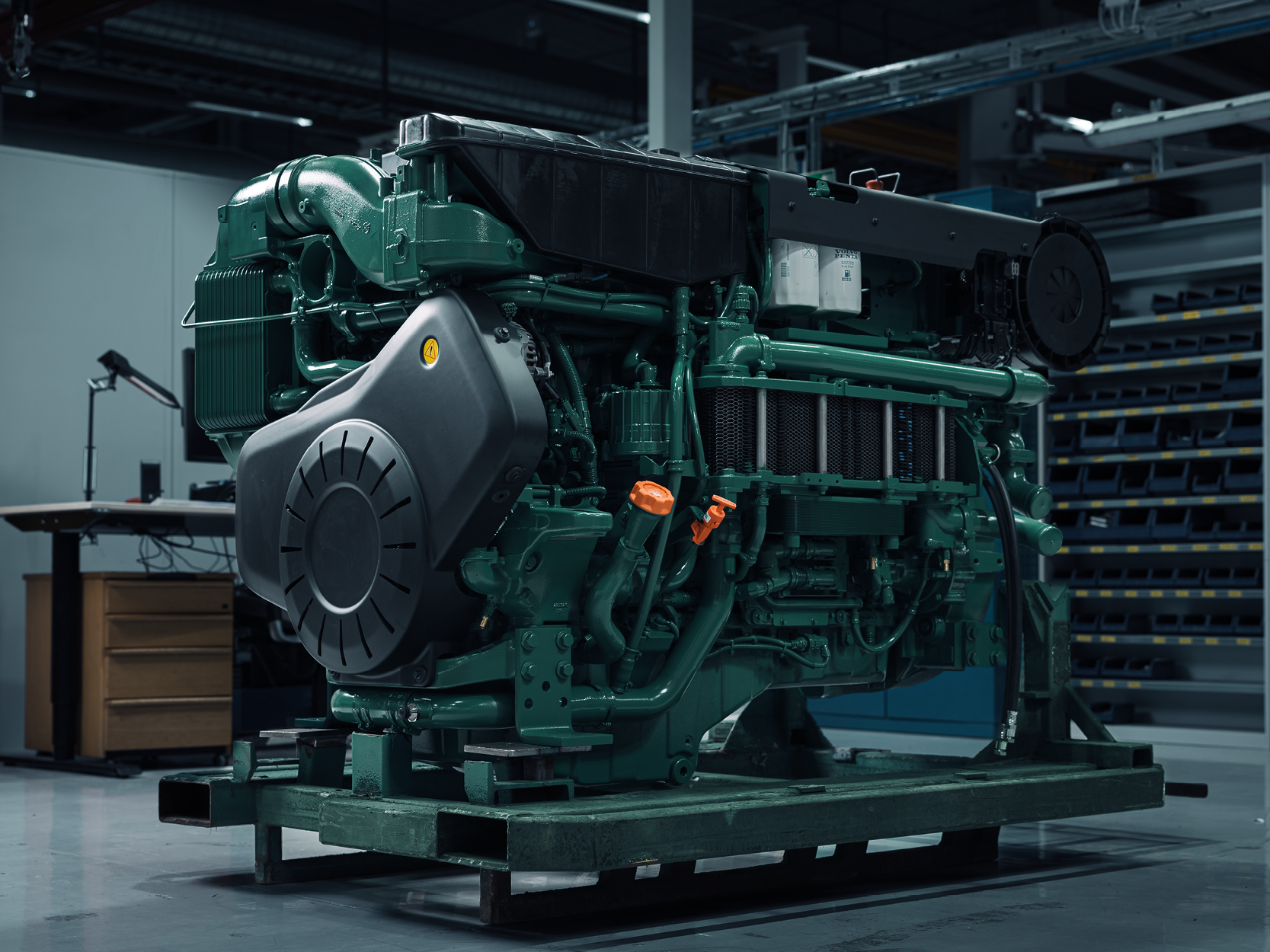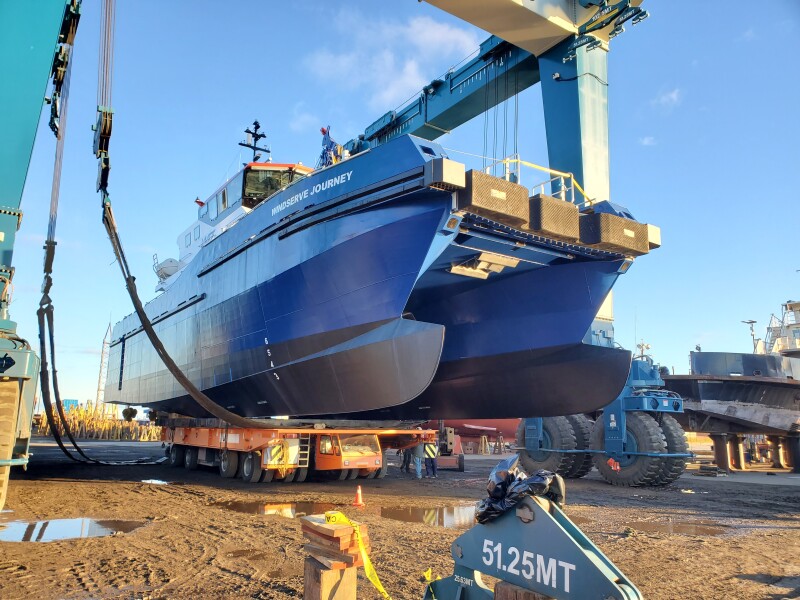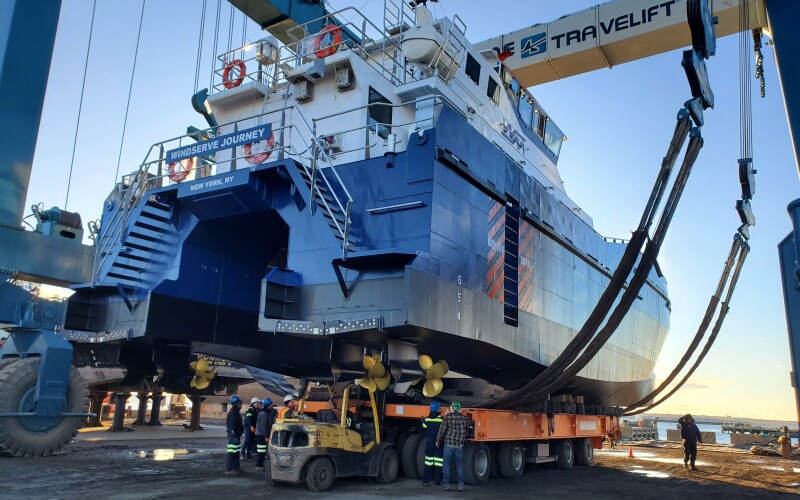Within crew transfer vessels (CTVs) servicing wind farms, Volvo Penta's Inboard Performance System (IPS) has emerged as a notable contender. Representatives from Volvo Penta shed light on the factors driving the suitability of Volvo’s IPS for Offshore Wind.
Dave Brown, director of marine diesel sales at Volvo Penta, noted the distinct advantages that their IPS offers, specifically in its thrust capabilities, which he states outperforms traditional propulsion methods.
“What IPS does when you really start talking about it within the offshore wind market, in the capabilities that it provides, above and beyond traditional propulsion, is that thrust. And the ability to put this boat up against a piling, in a type of sea state, and allow for operators to get on and off that wind farm platform in a safe manner,” Brown told WorkBoat.
Brown also spoke to the fuel savings that comes with the propulsion system. “The developers of the offshore wind, since they pay the fuel bill, they are also extremely interested in having IPS because there is a significant fuel savings when you're running with IPS, typically, somewhere in the 30 percent range. And so those things in coordination with the support that we've done on a global scale, we're bringing that expertise here in the States.”
Drew Pelton, applications engineering manager, highlighted Volvo Penta's established support networks (power centers) in key regions, which provide reassurance to operators regarding ongoing maintenance and technical assistance. Drew also emphasized IPS's efficiency in complying with speed restrictions, such as those aimed at protecting marine wildlife.
Both Pelton and Brown noted that a lot of the buzz around Volvo’s IPS system is customer-driven.
“On sea trials, the handling of IPS versus the waterjet, they (operators) were very impressed with that…they've said fuel burn, also the maneuverability and serviceability,” said Pelton. He elaborate on serviceability in key regions. “When we have a drive go down, you can replace it very quickly and be back up and running, you know, within a day, versus some other traditional propulsion types.”
The Volvo Penta IPS and range of engines can be viewed here.
